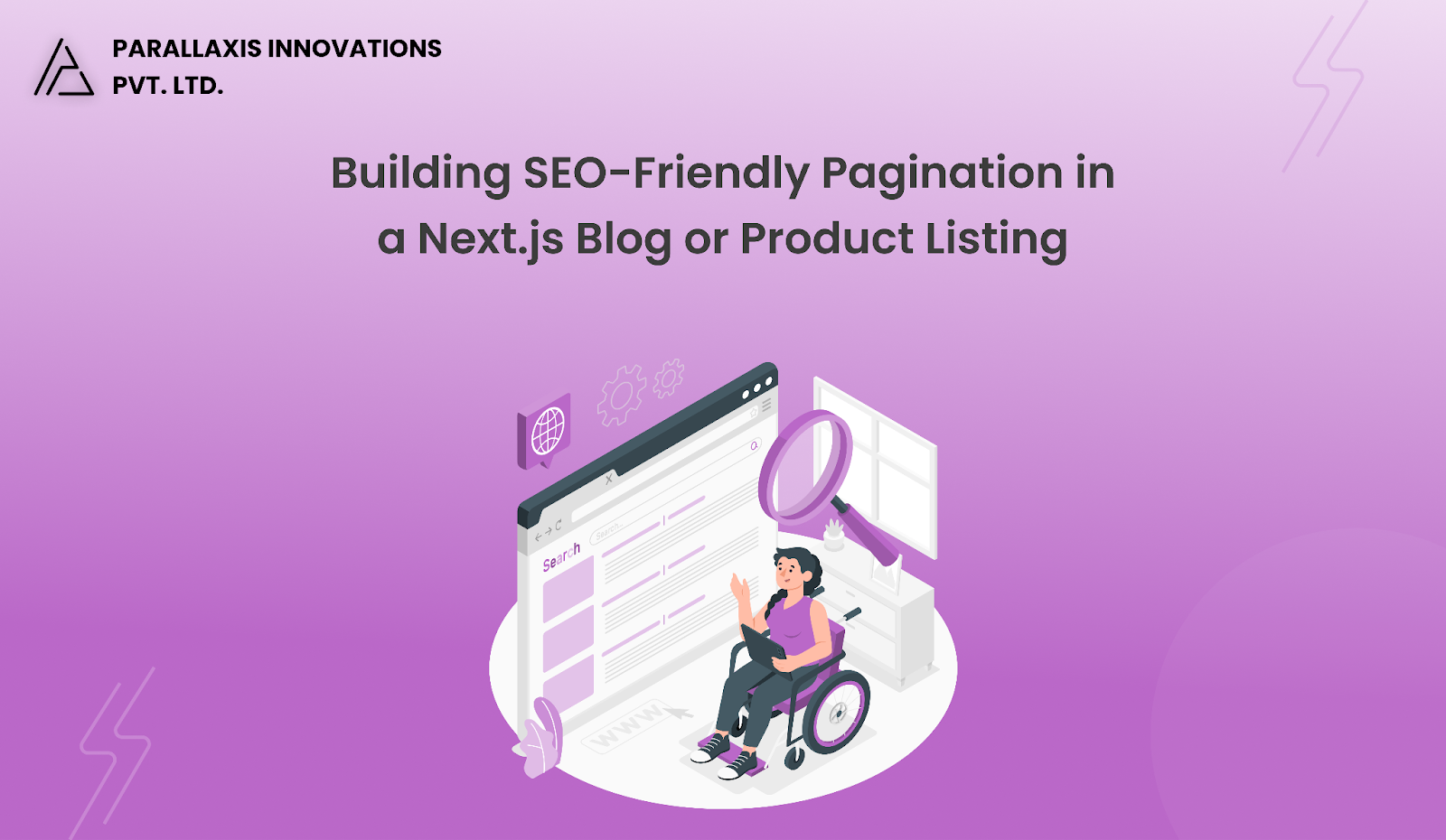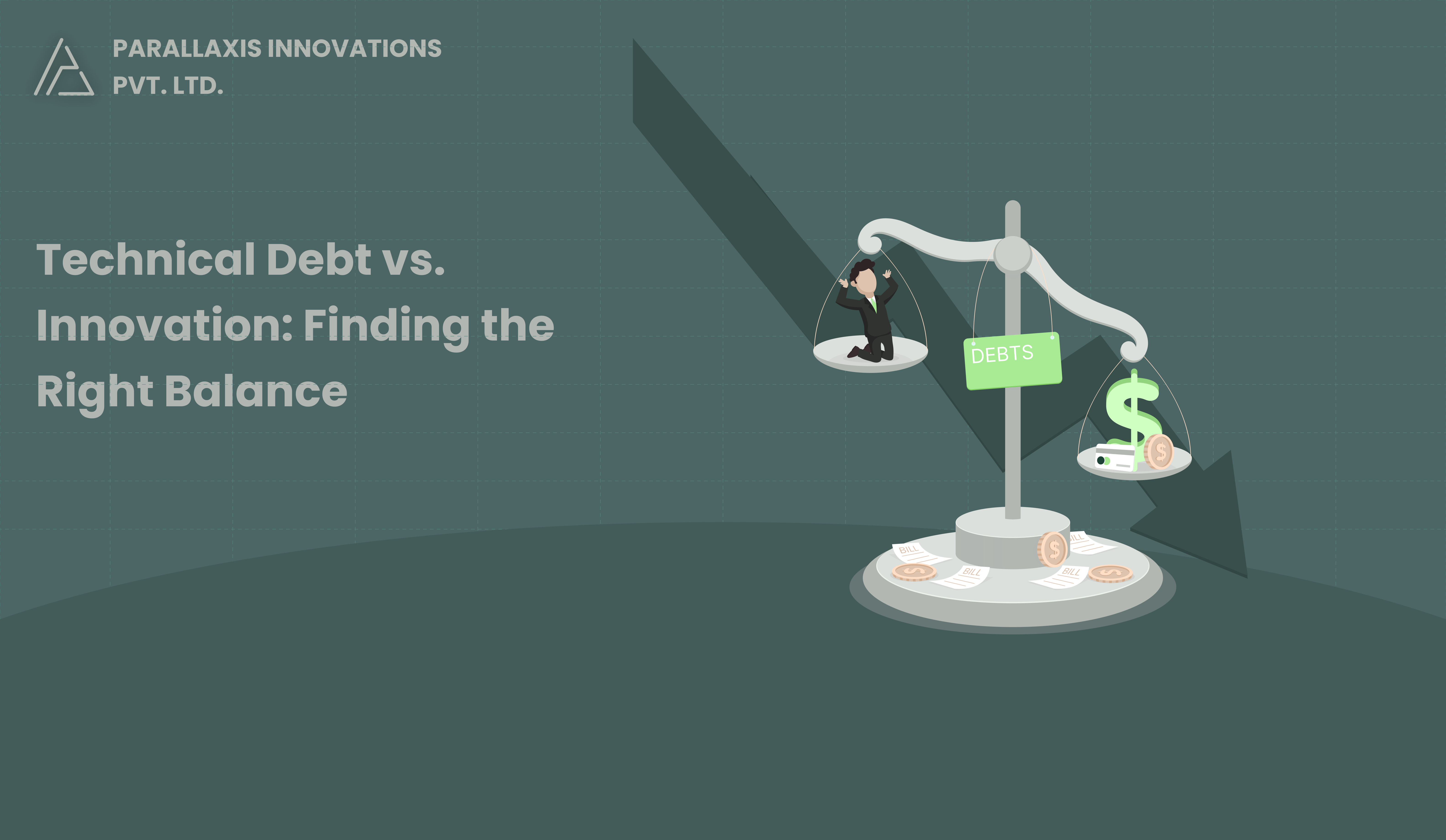When your blog or product listing grows pagination becomes necessary to organize content. But poorly implemented pagination can hurt your SEO, leading to crawl inefficiencies, duplicate content, and lower rankings.
In this post, we'll walk you through how to build SEO-friendly pagination in a Next.js application, whether you're displ
aying blog posts, products, or search results.
Why Pagination Affects SEO
Pagination is more than just UI it's a crawl and ranking concern. Here's what’s at stake:
- Duplicate content: Similar pages with only slight differences (e.g., page 1 vs page 2).
- Poor crawl depth: Search engines may not discover content buried deep in paginated series.
- Link equity dilution: Important pages may receive fewer internal links.
- Bad URL structure: Dynamic or non-descriptive URLs can confuse crawlers.
Proper pagination helps Google understand content relationships and improves discoverability.
Setting Up Pagination in Next.js (Static Example)
Assume we have a blog with a list of posts fetched at build time using getStaticProps.
1. Define Page Size and Routes
Let’s say you show 5 posts per page.
File structure:
pages/
├── blog/
│ ├── index.js // Page 1
│ └── page/
│ └── [page].js // Page 2, 3, ...
2. Create Dynamic Route: pages/blog/page/[page].js
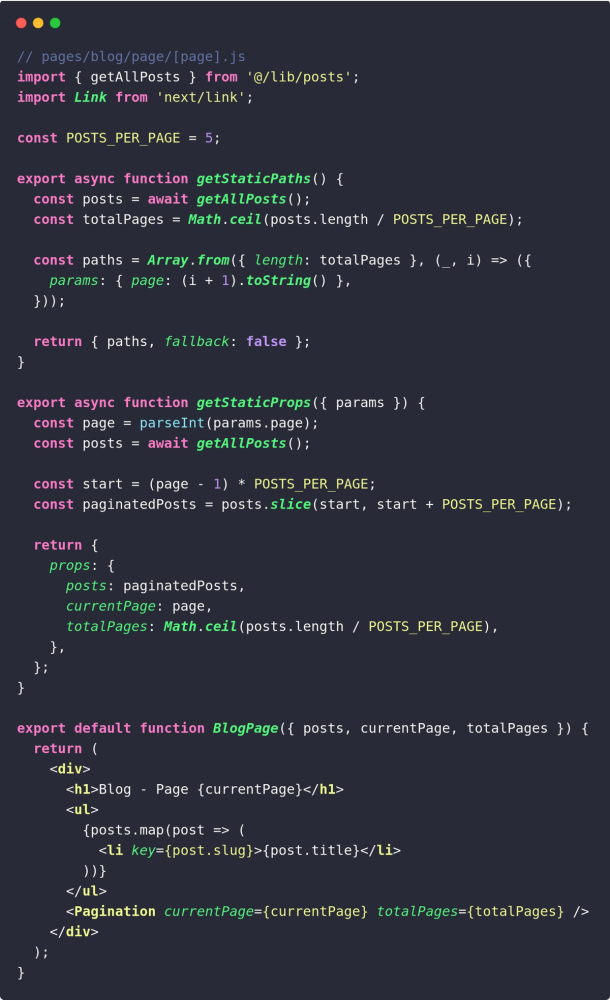
Pagination Component
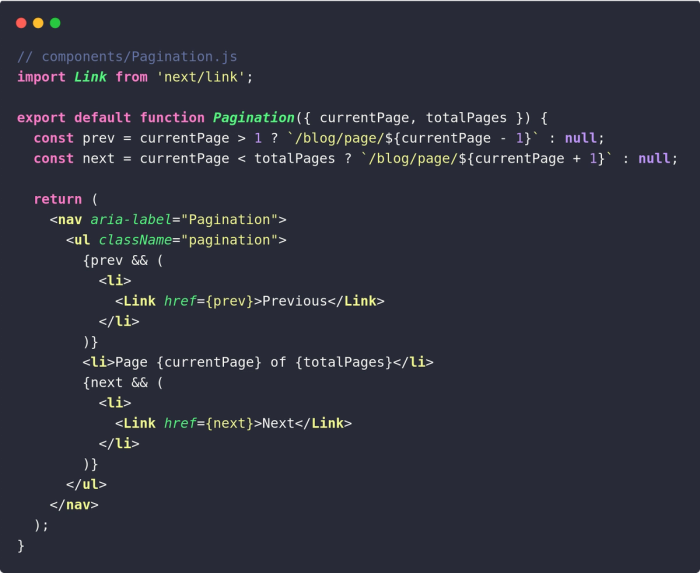
Making Pagination SEO-Friendly
Now, let's optimize it for SEO.
1. Add Canonical URLs
Use the <Head> component to define canonical URLs to avoid duplicate content issues:
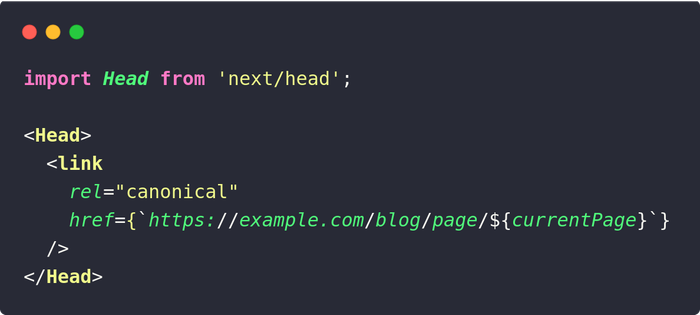
2. Use rel="prev" and rel="next"
This helps search engines understand the sequence.
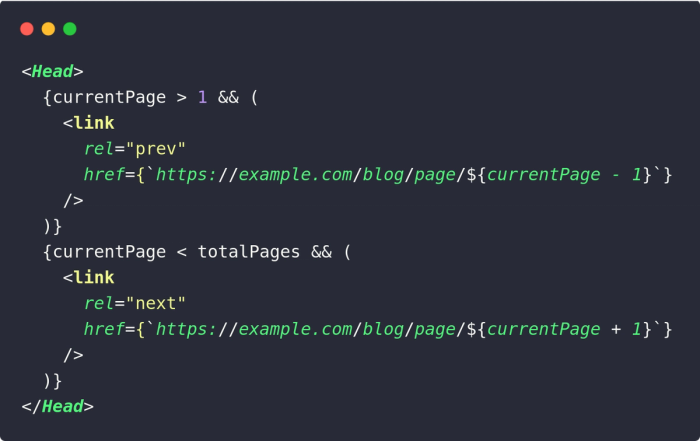
3. Avoid Crawling Deep Pages via Robots.txt? Not Recommended
Let Google crawl all paginated content to ensure full indexation. Don’t block page/* unless there's strong duplicate or thin content.
Optional: Create sitemap.xml
Include paginated routes in your sitemap for better discovery:

Clean URL Best Practices
- Avoid query params like ?page=2 unless needed
- Use /blog/page/2 instead clean, crawlable, and descriptive
- Set canonical tags properly to avoid content duplication
Final Thoughts
SEO-friendly pagination in Next.js is about more than page numbers it's about clean structure, proper meta tags, and efficient rendering. By following the steps above, you’ll ensure that your content is discoverable, fast, and optimized for users and bots alike.
